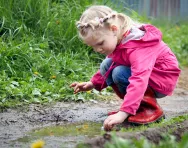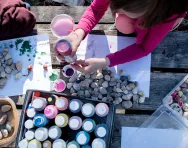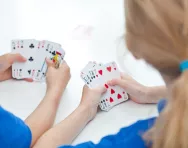Important update from TheSchoolRun
For the past 13 years, TheSchoolRun has been run by a small team of mums working from home, dedicated to providing quality educational resources to primary school parents. Unfortunately, rising supplier costs and falling revenue have made it impossible for us to continue operating, and we’ve had to make the difficult decision to close. The good news: We’ve arranged for another educational provider to take over many of our resources. These will be hosted on a new portal, where the content will be updated and expanded to support your child’s learning.
What this means for subscribers:
- Your subscription is still active, and for now, you can keep using the website as normal — just log in with your usual details to access all our articles and resources*.
- In a few months, all resources will move to the new portal. You’ll continue to have access there until your subscription ends. We’ll send you full details nearer the time.
- As a thank you for your support, we’ll also be sending you 16 primary school eBooks (worth £108.84) to download and keep.
A few changes to be aware of:
- The Learning Journey weekly email has ended, but your child’s plan will still be updated on your dashboard each Monday. Just log in to see the recommended worksheets.
- The 11+ weekly emails have now ended. We sent you all the remaining emails in the series at the end of March — please check your inbox (and spam folder) if you haven’t seen them. You can also follow the full programme here: 11+ Learning Journey.
If you have any questions, please contact us at [email protected]. Thank you for being part of our journey it’s been a privilege to support your family’s learning.
*If you need to reset your password, it will still work as usual. Please check your spam folder if the reset email doesn’t appear in your inbox.
How to structure your day during homeschooling

Whether you thoroughly enjoy homeschooling or find it a real struggle, being in a position where your child is off school, perhaps due to illness or travel, can be stressful or overwhelming but it’s important to remember that nobody is expecting perfection.
It’s okay to have doubts and make mistakes, but having some structure to your day could help you and your child.
How much work should your child be doing each day?
Nobody expects you to be working with your child from 9am until 3pm. This just isn’t practical, and is likely to end in tears – for you and your child!
During a typical school day, your child’s teacher splits their time between 30-odd pupils, whereas at home, they have one-to-one attention, and fewer distractions. Far more learning can take place in a focused half-hour than could possibly be achieved in a busy classroom at school – even if you’re not an expert home educator.
This means that your ‘school day’ doesn’t need to be six hours long. You’ll probably find your child gets through their home learning in a fraction of this time.
Your child's school may send work home during this time, which will give you a good idea of the types of activities they have been doing at school, and how long they spend on them.
As a guideline, and depending on what work is sent home, I would suggest aiming for approximately 45 minutes of both maths and English each day, give or take 15 minutes depending on your child’s age and ability.
You could also spend 15-20 minutes reading independently or listening to stories.
These are only suggested times: as a parent, you know best and know what is realistic to expect from your child.


Get daily resources delivered to your inbox
- English & maths worksheets for your child's school year
- Interactive maths tutorials
- Topic-themed learning packs & workbooks
- Fun activities & games
How should you structure your day?
When it comes to planning your day, there’s no such thing as a right or wrong schedule.
Some children may work best if they work in short 15-minute bursts throughout the day, while others may be better suited to a longer, more focused session.
Some will want to get their learning out of the way in the morning, but others may be more alert and ready to learn after a chilled-out morning and some lunch.
If your child is older and beginning to show independence, you may simply be able to give them their daily activities and let them choose when they complete them, but be clear that all the day’s activities need to be completed within a certain time frame.
Younger children will need more supervision, but the amount of work that they need to do, and the depth in which they explore it, will be short.
Even if they're not travelling to school, it’s still good practice for your child to be up, dressed and ready for the day by 9am or thereabouts. (We have tips and advice to help you set up a home learning environment.)
Maintaining a regular waking time and bedtime will stop your days spiralling out of control and help your child to stay in a healthy routine.
Here are two examples of possible daily schedules (click on the images to download the timetables for your family). One is more structured and the other less structured.
A teacher's top tips for making home learning work
- Try not to worry about the limits of your own knowledge, and how you’ll be able to teach your children subjects and topics that you don’t understand yourself. Rather than letting it paralyse you, own up to the fact that you don’t know something, and use it as an opportunity to learn with your child. You might be surprised what they can teach you, and explaining their work to you will consolidate their knowledge.
- Don’t be too rigid in your approach to home learning. Many new home educators try to timetable the day as it would be at school, but this will lead to burn out and frustration for you and your child, as it’s far too intense. Trying to do too much will only deter your child from learning.
- There’s an abundance of information and guidance out there for parents, and with so many amazing resources at hand, there’s no reason why you can’t help to keep your child’s learning on track. It’s amazing what mathematical strategies can be understood by watching a well-made, reputable YouTube education video!
- It’s normal for your child to behave differently for you than they would with their class teacher, so don’t be discouraged if they push back against home learning. Discuss the situation with them, and encourage them to help plan their learning activities. This will help them to feel like a partner in the process, rather than simply being made to do it by Mum or Dad.
- If your child struggles with being homeschooled, try introducing activities slowly, starting with just one or two a day. You might also want to create a simple reward system to encourage them to complete activities.
- Plan breaks and free time around the learning activities. Encourage your child to play board games, build with Lego, play in the garden and bake. You’ll be surprised by how much English, maths and science can be incorporated into a good creative play session.
- Keep reminding yourself that there’s no single right way of doing this. Remember, whether or not they’re engaged in homework, your child will be learning from you, and showing resilience, determination and flexibility will equip them with skills for life.
Year-by-year key maths and English skills advice for school disruption
We all want to support our children in the best way possible, but juggling the barrage of amazing content available online and our own work and home responsibilities can be overwhelming.
If you need a guide to the essential skills to focus on right now, read our year-group tips for parents.
- Reception English and maths key skills for home learning
- 7 key areas for Year 1 home learning
- Year 2 English and maths: what to focus on at home
- Learning at home: Year 3 key English and maths skills
- Year 4 focus: maths and English learning support at home
- Year 5 learning at home: maths and English to concentrate on
- Year 6 maths and English key home learning topics
Best primary home schooling resources online
We also have guides to the best home schooling resources we've found:
- Best music home schooling resources
- Best poetry home schooling resources
- Best performance and creative home schooling resources
- Best art home schooling resources
- Best numeracy home schooling resources
- Best literacy home schooling resources
- Best design and technology home schooling resources
- Best wildlife and nature home schooling resources
- Best geography home schooling resources
- Best coding home schooling resources
- Best science home schooling resources
- Best history home schooling resources








